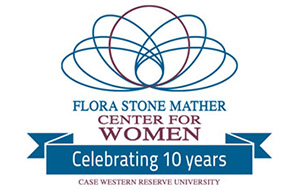 Flora Stone Mather College alumna and Cleveland native Barbara “Dusty” Roads (FSM ’50) is a civil rights pioneer who paved the way for gender equality in the sky.
Flora Stone Mather College alumna and Cleveland native Barbara “Dusty” Roads (FSM ’50) is a civil rights pioneer who paved the way for gender equality in the sky.
In 1965, Roads and her fellow women flight attendants filed a complaint with the newly created Equal Employment Opportunity Commission, resulting in a historic case against her employer, American Airlines.
The case argued that the airline’s policy of imposing an age limit for continued employment on women flight attendants amounted to sex-based discrimination that violated Title VII of the Civil Rights Act of 1964. The U.S. Supreme Court agreed, forcing the airline industry to abolish such discriminatory policies.
Roads, now 86 and living in Santa Rosa, Calif., will participate in a panel discussion about the case with former co-worker and flight attendant Jean Montague and Renee Sentilles, associate professor of history at Case Western Reserve, who specializes in, among other subjects, American women’s history and gender studies.
The discussion, “The Fight For Fairness in Flight,” is Wednesday, Sept. 10, at noon at Tinkham Veale University Center. Lunch will be provided. The event is sponsored by the Flora Stone Mather Center for Women, which is celebrating its 10th anniversary. The event is free and open to the public, but registration is required.
A 1953 Transport Workers Union labor agreement spared Roads from the out-at-age-32 clause, but spurred her into action to fight the unfairness of such an age-imposed retirement rule.
By the mid-1960s, as the push for civil rights emerged in America, Roads became deeply concerned about discrimination against women. Stewardesses were required to retire at age 32, while male pilots could continue in their jobs until age 60.
What’s more, Roads sensed a sexist standard throughout the airline industry. A flight attendant had to be a young, fit, single woman. Pregnancy was grounds to be fired. The strict dress code included a girdle.
During flights from Washington, D.C., to Los Angeles, she met such celebrities as Frank Sinatra, Lucille Ball, Eleanor Roosevelt and many politicians. She quietly lobbied passengers with power to make changes, including then-Vice President Richard Nixon.
By 1968, the EEOC ruled in favor of the flight attendants.
Roads remained a flight attendant until her retirement at 66. Looking back on her effort to challenge discriminatory employment practices, Roads recalled in a PBS People’s Century interview how angry she felt about a policy that forced women to leave a job at 32.
“It violated my sense of fair play,” she said.
In the same interview, Roads expressed how she enjoys being a passenger and experiencing the age, sex and racial diversity among flight attendants today.
Roads’ father, lawyer Conger G. Roads, was a 1912 graduate of Western Reserve University School of Law. Her brother David graduated from Adelbert College the same year she did.

